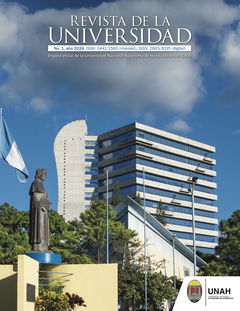The State, the capitalist system and society Honduran. San Francisco Case Study Opalac
DOI:
https://doi.org/10.5377/ru.v1i1.19157Keywords:
Local development, participatory planning, extension, autonomy, indigenous governanceAbstract
In this article, the situation of the municipality of San Francisco de Opalaca and the process of accompaniment to this municipality by the National Autonomous University of Honduras is contextualized, where the main objective was set to strengthen the indigenous governance of the Auxiliary de la Vara Alta. This approach allows us to see power relations and inequalities that affect the living conditions of its population and its potential, and whose deepest aspects are part of an articulated cultural, economic and social system of its population. During this accompaniment, problems associated with poverty in the municipality, related to democracy, have been detected, such as the demands of the population, who receives and manages them, who assumes responsibility for monitoring and responding to them. The baseline allowed mapping some potential for local development, such as the vocation to care for natural resources, the environment and water. The population has a focus on self-management and autonomy in its social, economic and political processes. The Auxiliaria de la Vara Alta is the most important social organization with the greatest legitimacy for the people of San Francisco de Opalaca. The proof is that in alliance with the University they have managed to establish development projects for the municipality that can be measured in the future for the purposes of evaluating their impact.
202
Downloads
Published
How to Cite
Issue
Section
License
Copyright (c) 2024 Revista de la Universidad

This work is licensed under a Creative Commons Attribution-NonCommercial-ShareAlike 4.0 International License.




